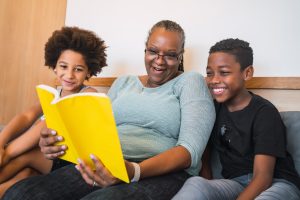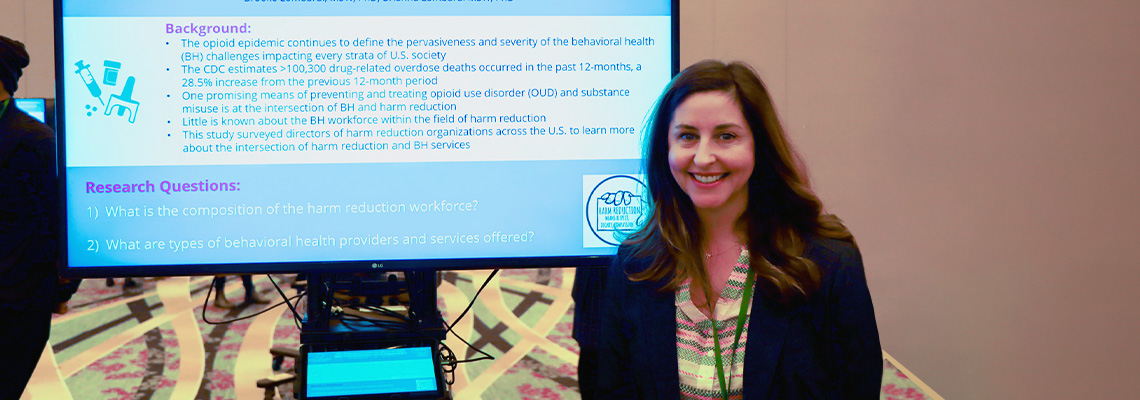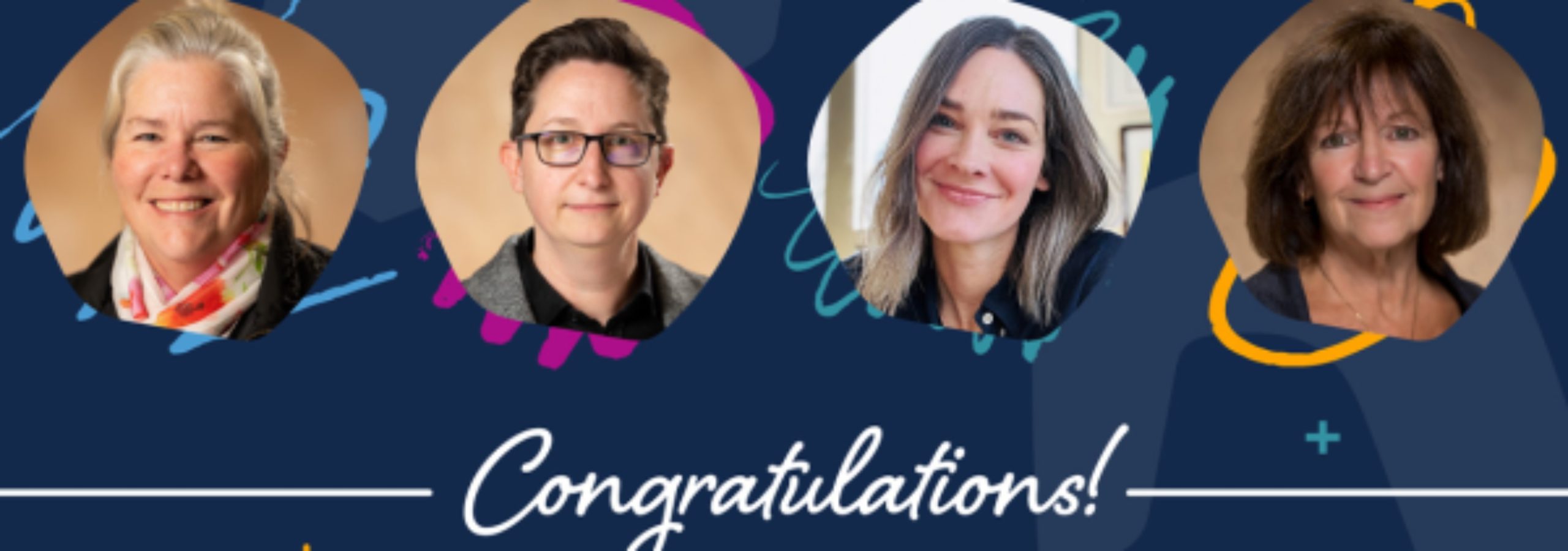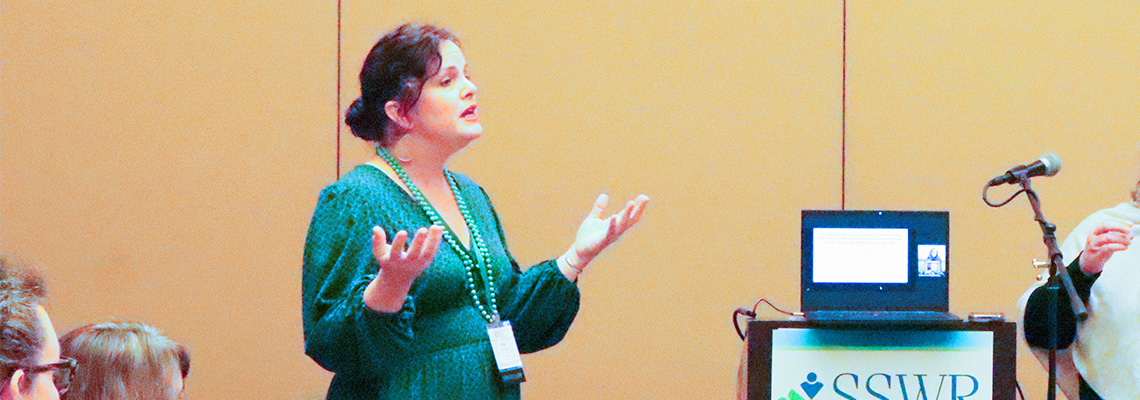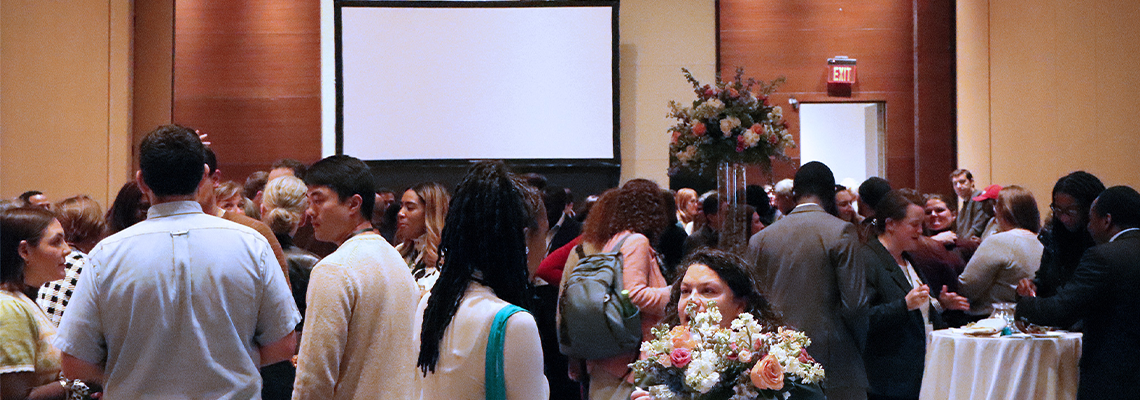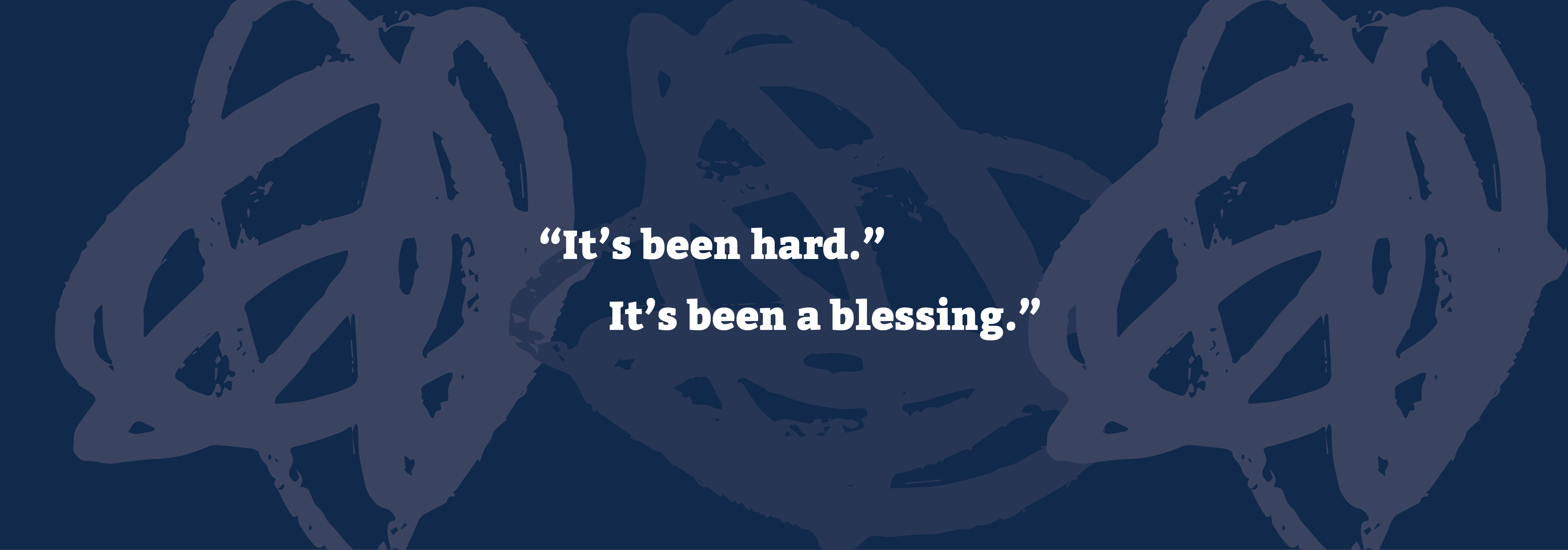by Barbara Wiedemann
How many of us know of grandparents, aunts and uncles, siblings, or family friends raising their relatives’ or friends’ children? How many of us are those caretakers?
This invisible army of often unpaid providers care for over 2.7 million (4%) of America’s children in their homes, a 2016-18 study estimated.
Kinship caregivers have long been the focus of study for University of North Carolina at Chapel Hill School of Social Work Dean Ramona Denby-Brinson, the School’s Wallace H. Kuralt, Sr. Distinguished Professor of Public Welfare Policy and Administration.
On Thursday, Jan. 11, on the opening day of the 28th annual Society for Social Work and Research conference in Washington, D.C., Denby-Brinson and UNC research associates Amanda Klein-Cox and Angela Tobin presented “Hidden and Unmet Needs: Supporting Kinship Caregivers Raising Children with Disabilities.”
The three researchers are working on KinCarolina, a five-year intervention study supported by a $1.7 million grant from The Duke Endowment, with a team of additional researchers and nonprofit experts in the field of kinship care. The study aims to prevent child maltreatment and strengthen support for kinship caregivers raising children with special health care needs.
KinCarolina work begins in the state of South Carolina. The team hopes to later sustain and scale the program into North Carolina as well.
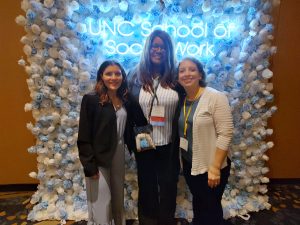
Tobin invited two family caregivers to join the presentation remotely, both of whom added their insights and shared both poignant and grace-filled experiences during the presentation and Q&A period afterwards.
Why South Carolina?
Klein-Cox explained that the nonprofit organization grandfamilies.org provides state profiles of different statistics related to kinship care, and the data is overwhelming.
“We wondered: How many American children are estimated to be raised by family, who did not go through the child welfare system — which means not only that they are not receiving any services but that they are ‘off the radar’ in terms of our understanding of how large the population is and what their needs might be?” Klein-Cox said.
She found that nationally, for every child in formal care there are 19 in informal care. In South Carolina, for every child in formal care, there are an estimated 308 children in informal care.
“That’s why we are starting in South Carolina and that is one of the reasons we are partnering with — among others — University of South Carolina’s Dr. Yanfeng Xu and nonprofit co-founder and CEO Kimberly Janha of Kindred Hearts of SC,” Klein-Cox said.
During the SSWR presentation, Klein-Cox pointed out the difficulty in finding data about children in kinship care and which of those children might have special health needs. No clear definition or consensus exists, and states differ in the way that they gather and present data on child caregivers outside of the child welfare system. She reviewed findings of the trio’s recent research on kinship caregivers during COVID, which could help inform the interventions being planned by the larger KinCarolina team.
Before introducing the presentation’s virtual guests, Tobin talked about the recent challenges faced by caregivers: from managing difficult behaviors to schooling from home to the academic support (including development disability accommodations or therapies) which children may not have received at home during the pandemic.
Denby-Brinson summarized KinCarolina’s plans over the five-year intervention study. These include developing support for kinship caregivers by doing a needs assessment, leading to the build-out of three elements of services: a one-on-one six-month peer liaison intervention; evidence-based psychoeducational trainings; and the formation of support groups to bring those with lived experiences together to share resources and support with one another.
Guest speakers Kim and Tangie, informal caregivers for children with developmental disabilities, agreed that these services are much needed.
“We are doing it because it is the right thing.”
The mother of two older sons, Kim talked about digging to discover how an IEP (individualized education program mapping out the special education instruction, supports and services for a student) could help the niece she took into her care when her brother was incarcerated.
“We don’t know all of the trauma she underwent before she got here,” she said, “but we know she has been diagnosed with multiple challenges, including PTSD and intermittent explosive disorder.”
Kim described how her niece’s needs required coordination between multiple systems, none of which shared information with one another.
“When my younger son was 13 and we had first taken her in and she was exploding at me, he would ask ‘Mom, why are we doing this?’” she told the audience.
“I know why; we are doing it because it is the right thing,”her son then added, after some thought. “We are doing it because we are trying to give her a good life.”
“I am Team Kain.”
“You have to fight a system you’re not sure about,” said Tangie, who took her grandson in and has legal custody of him. She said that the child’s father was addicted to methamphetamines when a caseworker called her and asked if she had a car seat and could take the child to a safe place.
“It’s not like you take on this responsibility and suddenly people are saying ‘This is what you need to do, how can I help?’” she said, as she articulated how the child’s disabilities, and how being a caregiver outside of the more generally understood biological or foster parent model, added layers of complexity to the task of raising a child.
When people ask what she does for a living, Tangie said that she tells them, “I am Team Kain.”
Faith and grace, she said, are more important than anything in the world to her.
“And trying to stay in the moment helps,” she added. “It’s been hard,” she said before pausing to add, “It’s been a blessing.”
Really big deal
“This is a really big deal,” said a member of the SSWR audience. “It was a big topic in the late ’90s, and then people stopped talking about it. Why?”
“I’m still talking about it,” said Denby-Brinson, the author of the 2015 book “Kinship Care: Increasing Child Well-Being Through Practice, Policy and Research.”
“I think this is one of the most neglected parts of our child welfare system. We must help.”

